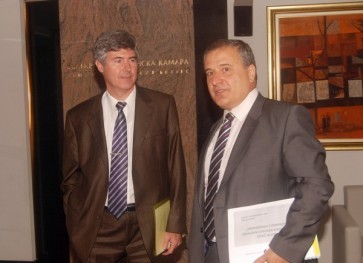BULGARIA CONSUMES FIVE TIMES MORE ELECTRICITY THAN EUROPE
Bulgaria consumes five times more electricity than the EU in order to generate a unit of GDP, showed a survey of BIA (Bulgarian Industrial Association) and the Friedrich Ebert Foundation, presented at a workshop entitled Industrial Policies and Power Engineering - Imbalances and Liberalisation. Innovation, energy efficiency and energy market liberalisation are the three areas in which our country dramatically lags behind other countries. According to the survey, the share of innovations in the structure of Bulgaria’s exports is only 3.6%, compared to the 12% average in the EU and 20% in Hungary. “In addition, the number of patents per 1,000,000 people is four in Bulgaria, 33 in Estonia, 291 in Germany, while the EU average is 117,” specified BIA’s Deputy Chairman Kamen Kolev.
Structural imbalances in the economy deepen. There are problems in the business environment and regulations, the low remuneration of highly-skilled personnel, distortions in the industrial structure. Relatively low labour costs and comparatively cheap electricity create an environment that discourages innovation. This results in high energy intensity for the generation of GDP, which is five times higher than the EU average, read the survey. Furthermore, the consumption of fossil fuels and nuclear power in our country is twice higher than the average in the EU.
The fulfilment of Bulgaria’s commitments for reduction of carbon emissions will lead to a dramatic increase in energy prices by 30% in 2013, predicted the Executive Chairman of BIA Bozhidar Danev. “Our task is to implement the third EU package for liberalisation of the energy market but we still lack a roadmap for that. There are serious imbalances with regard to price formation in our country. Bulgaria should stop using energy prices as a social tool because this distorts macroeconomic indicators,” Danev commented.
The participants in the discussion shared the opinion that the transition to a low-carbon economy should be achieved at the lowest possible costs, economically and socially acceptable to society and businesses. This can be done through liberalisation of the energy market, separation of electricity generation from its transmission and demonopolisation of the energy sector, while preserving competitive, powerful structures with advantages on the European energy market. “On paper, the energy market was liberalised back in 2007 but, practically, this is not so,” said Elisaveta Mihailova, Director of a department in the Ministry of Economy, Energy and Tourism. She said that amendments to the Energy Act are being drafted, aimed at making market liberalisation a reality.






